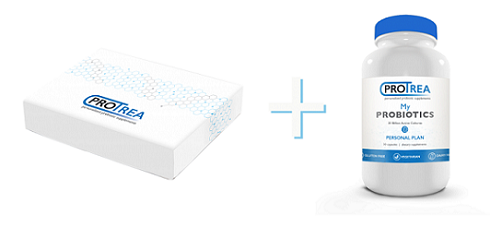What Are the Primary Health Benefits of Probiotics?
Ben Tweener
If you are interested in finding new ways to improve your bodily and mental health, one simple change you may want to consider is to integrate probiotics into your daily regimen. While bacteria typically have a nasty reputation of causing disease, the truth is that your body is teeming with bacterial life that it needs to prosper and grow.
In fact, your body is home to literally trillions of bacteria known as probiotics. Growing scientific evidence suggest that by adding to your body’s natural probiotic population, you can help stave off infections and other pathogens, improve digestive health, and even improve mental health as well.
In fact, since the mid-1990s, a number of clinical studies and trials have led to the widely held belief that probiotic consumption can help treat a number of gastrointestinal ills, delay or reduce the development of allergies in children, can treat and prevent vaginal and urinary infections in women, and can reduce the risk of depressive and anxiety-related mental health disorders.
On the other side of the coin, many aspects of modern life – such as a diet that is filled with unhealthy and processed foods, lack of sleep and adequate exercise, and substantial levels of stress, can result in a depletion of the healthy microbes in your gut and beyond. When that takes place, unhealthy germs take over and send your gut microbiota out of balance. That can quickly lead to a many number of illnesses and disorders.
Major benefits of taking probiotics
Probiotics is essentially a catch-all term, but it is important to note that not all probiotics are the same. Different strains of the bacteria have different impacts on the body. For example, while on strain may colonize the microbiota in your mouth and help fight against organisms that can cause cavities in your mouth, others will colonize your gut microbiota (the largest microbiota in the body) and aid in reducing the risk of leaky gut syndrome, or bloat.
Research is currently very promising in regards to the physiological impact that probiotics can have on the body, with the following already having been identified as possible illnesses that can be cured or reduced thanks to probiotic consumption:
Irritable bowel syndrome
Diarrhea
Crohn’s disease
Diarrhea
Vaginal infections
H. pylori (cause of ulcers)
Urinary tract infections
Infection of the digestive tract as a result of Clostridium difficile
Recurrence of bladder cancer
Eczema in children
Pouchitis
Inflammation
Probiotics and gut health
You may not be surprised by this, but the best care for probiotic therapy per the research that has been done takes place within the gut. Controlled trials have shown that the probiotic strain known as Lactobacillus GG can shorten the course of infectious diarrhea in infants and children. While studies are limited, two large reviews suggest that probiotics are able to naturally reduce antibiotic-associated diarrhea by 60 percent when compared to a placebo.
Another issue that millions deal with is constipation. That is also something that studies have found can be solved with probiotics. In one study that examined probiotics’ ability to treat constipation, researchers found that probiotics were able to slow “gut transit time” by 12.4 hours, increase the number of weekly bowel movements by 1.3, and helped soften stools, making them easier to pass.
A more serious disease that may also be treatable by probiotics is Crohn’s disease. Clinical trials results are still somewhat mixed, but a number of smaller studies have suggested that probiotics may be able to help maintain remission of ulcerative colitis and prevent relapse of Crohn’s disease.
Probiotics and the immune system
Another important part of the human body that probiotics may be able to improve is the immune system. Our naturally occurring immune system is the way in which we stave off infection and other illnesses.
The reason why immune system can be assisted by probiotics has to do with the fact that the majority of bacterial infections enter the body through the digestive tract.
With probiotics, they help strengthen your immune system in several ways. The first way they help your immune system is by crowding out pathogens. Probiotics can colonize your gut and use up all the necessary space and nutrients that pathogens also need to take hold and reproduce.
Probiotics also help your immune system by identifying and killing pathogens that may otherwise go unchecked.
Probiotics and vaginal health
Another aspect of human health that probiotics may be able to have a positive impact on is vaginal health.
Much like the intestinal tract, the vagina in an incredibly finely tuned ecosystem. The dominant probiotic that naturally exists within the vaginal tract is meant to make it too acidic for unhealthy and harmful microorganisms to survive. That being said, the system can be thrown out of balance from the use of antibiotics, spermicides, and birth control.
Probiotic treatment can help restore that balance and protect the body from urogenital problems such as bacterial vaginosis, yeast infection, and urinary tract infections.
Things to keep in mind about probiotics
Probiotics are generally considered safe as they occur naturally in the body, but there are some instances in which you should consult your primary care provider before taking probiotics. Typically, those who have impaired immune function should certainly consult with their doctors before taking probiotics.
Another thing to keep in mind is that probiotics typically take four weeks to six weeks to start showing their full effects. It is no quick fix and you need to adhere to a daily regimen of use if you really want to feel its fully effects.
One final factor regarding probiotics to consider is that not all supplements are created equal. Before you purchase a slew of different probiotic capsules, make sure that the brand is highly regarded and that the bottle boasts live cultures. You will also want to make sure that you are aware of any storing specifications necessary. For example, many probiotics require refrigeration to extend its shelf life.
Hopefully, this have given you a good idea of how probiotics can help you and improve your health. It might be time to consider integrating probiotics into your pursuit of a healthier you!











